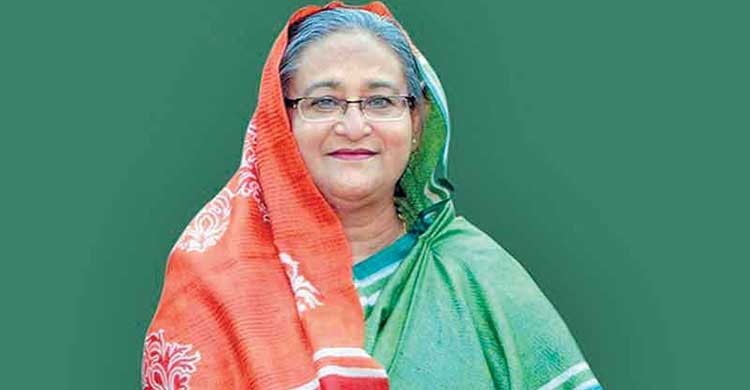PM’s article published in FORTUNE magazine
21 December 2021, 03:00 pm | Updated: 10 April 2025, 12:53 am

Prime Minister Sheikh Hasina has said the Covid-19 pandemic couldn't hit hard her country due to the government's prompt actions to protect most vulnerable people and businesses.
“Bangladesh could have fallen prey to Covid-19 but we acted fast to protect both our most vulnerable people and businesses. As a result, the pandemic did not hit Bangladesh as hard as other countries,” she wrote in an article published in New York based famous magazine FORTUNE on Monday.
Bangladesh could have fallen prey to Covid-19 but we acted fast to protect both our most vulnerable people and businesses. As a result, the pandemic did not hit Bangladesh as hard as other countries. We are emerging from the pandemic in a good position to continue the economic resurgence that began a decade ago.
Our approach to fighting Covid-19 was to balance lives and livelihoods, focusing on the needs of people first and then assisting the businesses that employed them.
At the very start of the pandemic last year, the government offered relief to the ultra-poor, the disabled, seniors, migrants, and impoverished women.
We quickly distributed cash and other types of assistance to 40 million people, a quarter of the population. This came in the form of 28 separate stimulus programs totaling $22.1 billion-nearly 6.2% of our Gross Domestic Product (GDP). We spent billions of additional dollars on vaccines and other emergency measures.
People continue to be at the heart of everything we do, whatever the Omicron variant brings. The government instituted a “No One Will Go Hungry” policy that provided rice, baby food, and cash to 16.8 million families. We targeted payments to the aged, the disabled, and deserted and destitute women. We expanded a program inaugurated prior to the pandemic to build houses for the homeless to commemorate the centenary of the birth of my father-the founding father of the nation and its first president-Bangabandhu Sheikh Mujibur Rahman. The program contributed immensely to our fight against the disease.
The government also prioritized assisting small businesses and their employees. We offered low-interest loans to small-business entrepreneurs, especially women and farmers. Government loans on favorable terms also were used to pay workers in the tourism and hospitality industries that were ravaged by shutdowns.
Larger businesses also received assistance: Several rounds of multi-billion-dollar payments went to employees of export-oriented companies, such as those in our vital garment-making industry.
A working-capital loan facility was established to keep both big manufacturers and rapidly growing service firms, including information technology companies, in operation. Interest payments on these loans were split between the borrowers and the government. Interest payments on all commercial loans, in fact, were suspended for two months last year and then spread out over the next 12 months to ease the financial burden on employers.
Like other nations, Bangladesh instituted social distancing edicts, mandated the wearing of face coverings, and enforced a 66-day public holiday from late March to early June last year. Industrial production slid. Small and medium-sized businesses were shuttered. Global lockdowns reduced demand and rocked our entire economy. However, we never lost faith in ourselves and continued to invest in our people. We set up testing facilities.
We did contact tracing. We installed isolation facilities in hospitals across the country. We also recruited 6,200 doctors, 10,000 nurses, and 3,000 other key medical personnel. In the end, thanks in part to years of investments at the local level, our healthcare system was resilient despite the terrible strain, reports BSS.
The combination of new initiatives and past investments has saved countless lives and allowed our economy to weather the storm. GDP growth has increased roughly by two percentage points since November last year. Bangladesh is now






















